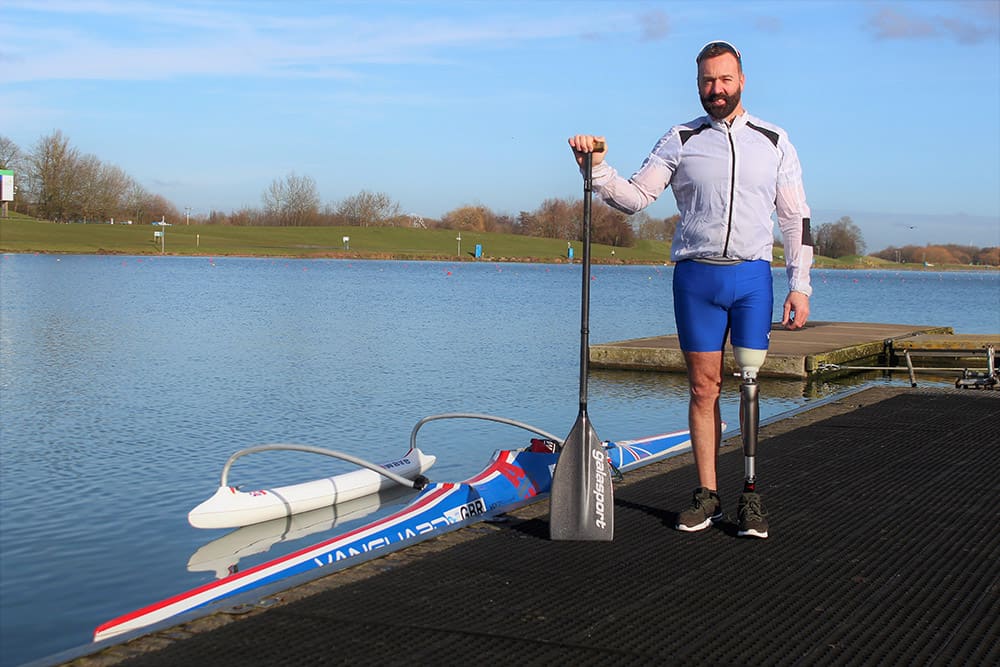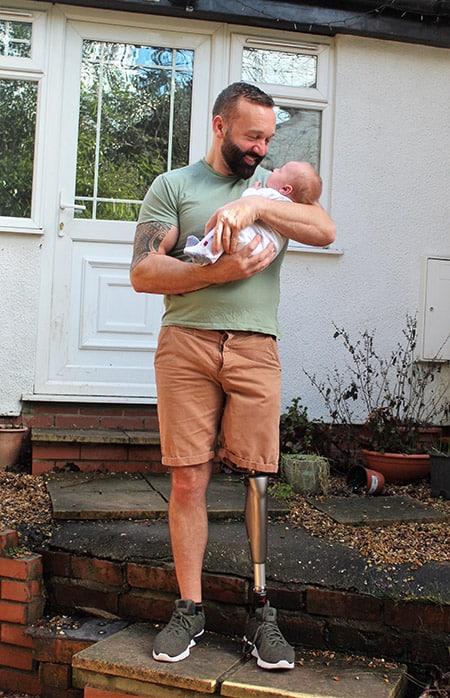Daddy duties are worry free for Martin thanks to C-Leg technology


Thanks to the world’s leading microprocessor knee (MPK), the Ottobock C-Leg 4, the above-knee amputee, from Barlaston near Stoke, is confidently fulfilling his daddy duties.
Martin, 45, had invested in the first edition of the C-Leg when he lost his leg in a motorcycle accident in 2004, but after the vital prosthesis came to the end of its lifespan, he returned to his previous leg, known as a mechanical free knee.
He said: “I got on the best I could with my free knee but falling over was a regular occurrence and I just had to accept that as a part of my life. But then my partner and I were expecting our first child and I was getting more and more worried about safety.
“The team at my NHS limb centre at Stoke set me up with my new C-Leg and it is so brilliant. It’s taken all the stress and worry away.”
The Ottobock C-Leg, which was first launched in 1997, has computerised technology within the knee joint to intuitively work with the user to create a natural walking pattern, and prevent stumbles and falls. It also allows users to walk down stairs, step-over-step, and walk backwards confidently.
Martin was able to get his new C-Leg through the NHS England’s MPK policy, which has been in place since 2016 and is open to through-knee, above-knee and hip disarticulation amputees who meet the qualifying criteria.
For Martin, having the C-Leg means he can do everything he wants to with his baby son, Harley, who was born on Christmas Day.
“I can carry Harley down the stairs and know I’m not going to fall when he’s in my arms,” he said. “I’ve also noticed a big reduction in the pain and bruising I had in my residual limb – it’s the little differences I didn’t expect which have, and continue to, surprise me.”
When he’s not looking after Harley with his partner Charlotte, Martin is busy with his para-canoe training, where the C-Leg is also assisting him, especially with carrying his seven metre canoe to the water’s edge.
The former boxer got involved in the sport having already succeeded in Paralympic trials for powerlifting and also for rowing, where he represented Trentham Rowing Club against able-bodied competitors.
“The guys at Trentham were amazing and I don’t think they realised how much they helped me with my recovery,” he said. “The training was intense, which I needed physically, and psychologically. It got me back on track.”
Moving into para-canoeing was a natural fit for Martin and he became a two-time European champion and a two-time World Championship bronze medallist in his category.
This year, he is hoping to make the cut for Team GB for the Tokyo 2020 Paralympics. However, his event, the 200m V1 VL3 category, is a very tough one.
“At the moment there’s about four of us who have finishing times within a second of one another so it might be just the luck of the draw as to whether I make it,” he said. “But I am going to give it my best shot!”

